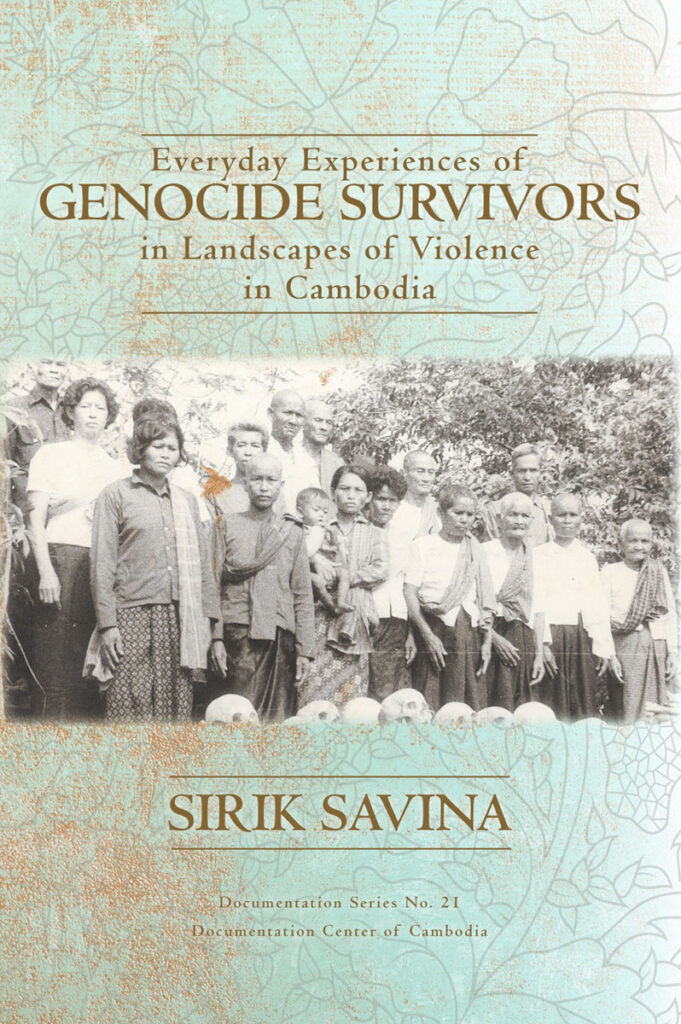This research examines the experiences of survivors who live in an unmarked site of mass violence in Cambodia, i.e., the former Khmer Rouge prison site of Chamkar Siv in Kandal Province, during and after the Democratic Kampuchea regime (1975-79). Based on oral history interviews with survivors, this paper constructs narratives of survivors’ experiences in the landscapes of violence. The findings from this study are twofold. First, individual narratives are important in providing a more complete understanding of the production of violence and acts of commemoration at the local level, despite the fact that memories of past violence have been politicized and constructed to fit within the present dominant narrative. Second, although there are variations among individual experiences, survivors’ narratives are constructed in a way that corresponds to the larger historical narratives.
ABOUT THE AUTHOR
The youngest child and only girl among her four siblings, Sirik Savina was born in 1983 in Phnom Penh, four years after the Khmer Rouge regime. She joined the Documentation Center of Cambodia (DC-Cam) in 2004 as a volunteer and since then she progressed from working as a field investigator to a team leader. She led the Living Documents Project at DC-Cam, where she was responsible for planning activities, leading villagers’ tours to Phnom Penh to observe the Extraordinary Chambers in the Courts of Cambodia’s trials, and conducting forums and film screenings in villages. From 2013 to 2015, she headed the Museum of Memory, a project at the Sleuk Rith Insitute, the permanent DC-Cam, in which she developed strategic planning and proposals, coordinated with the Museum’s partners, organized exhibitions and workshops with Tuol Sleng Genocide Museum and the National Museum of Cambodia.
In 2011, Ms. Sirik was a fellow of the Community Solutions Program, a Professional Development Program of the Bureau of Educational and Cultural Affairs of the United States Department of State, implemented by IREX, an international nonprofit organization providing thought leadership and innovative programs to promote positive lasting change globally. She holds a Bachelor of Arts in archaeology from the Royal University of Fine Arts in Phnom Penh and a Master of Arts in Peace and Reconciliation Studies from Coventry University, UK. She recently completed her second MA in Geography from Kent State University, USA, where she is also doing her Ph.D. in the same major.
Funding for this project was generously provided by Unites States Agency for International Development (USAID).

